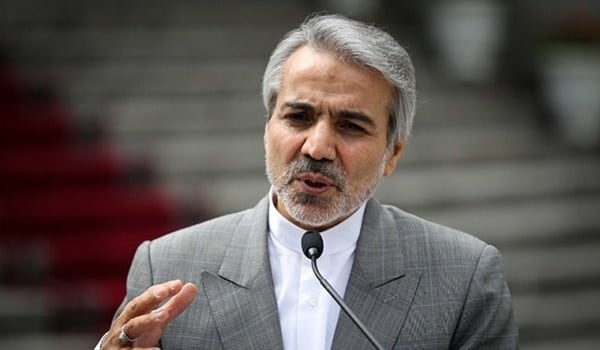President Hassan Rouhani’s senior advisor Mohammad Baqer Nobkaht has pronounced that Iran’s “resistance economy” will successfully defy the expansion of US sanctions.
Using the phrase introduced by the Supreme Leader in 2012, Nobakht said, “We have adopted proper measures to defuse or decrease impacts of these sanctions. We have devised 56 plans and 200 projects to implement the Resistance Economy policies.”
Nobakht did not identify any of the plans and projects.
On May 9, Donald Trump withdrew the US from the July 2015 nuclear deal. He announced the expansion of US economic restrictions on Iran, including the demand that all foreign companies with US ties break their trade and investment links with the Islamic Republic by November.
To sustain its economy while preserving the nuclear deal, Iran is seeking an expansion of trade and investment by foreign companies, particularly from Europe. While the European Union has introduced a “blocking mechanism” to shelter some firms from US punishment, it is struggling to guarantee major deals as leading companies announce their suspension of business with Tehran.
See Iran Daily: Tehran — Time Almost Up for Europe and Nuclear Deal
“In addition to the EU, we are improving relations with other countries, especially the neighbors,” Nobakht told reporters last month, referring to Foreign Minister Mohammad Javad Zarif’s recent visit to India and the Presidential advisor’s own trip to Thailand.
Asked about Iran’s exports after re-imposition of the US sanctions, he said, “A major part of the oil is sold to India and China.”
But analysts have estimated that Iran’s daily sales of 2.5 million barrels per day could drop by up to 40%, with shippers and insurers refusing to cover tankers and foreign companies — notably France’s Total, which has suspended a $4.9 billion investment in Iran’s gas fields — pulling out of Tehran’s energy sector.


Iran to issue oil investment bonds: https://www.reuters.com/article/us-oil-iran-bonds/iran-to-issue-bonds-for-investment-in-oil-sector-irna-idUSKBN1J81AC
Especially since the inflation rate is rising again as it has been doing in the past when major foreign policy changes to the detriment of the Iranian regime were expected.
https://www.bonbast.com/historical/usd/2018/06